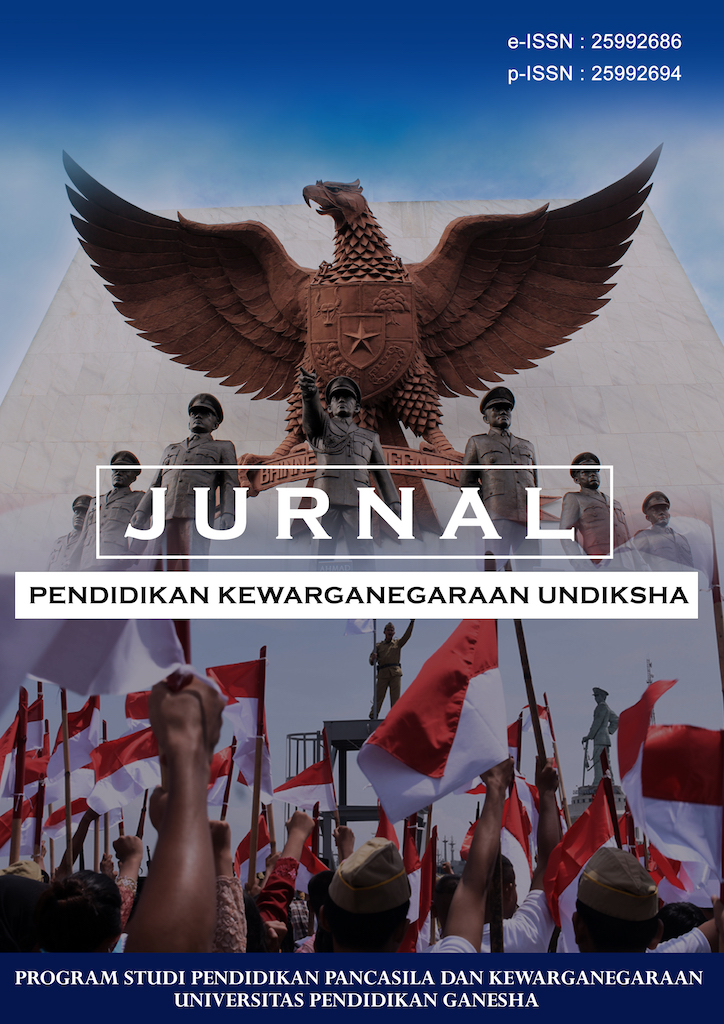PELAKSANAAN ASIMILASI DI TENGAH PANDEMI COVID-19 DI RUTAN KELAS IIB KABANJAHE
DOI:
https://doi.org/10.23887/jpku.v10i2.46830Abstract
Rumusan masalah dalam tulisan ini adalah: 1) bagaimana penerapan asimilasi di Rutan Kabanjahe tingkat IIB selama masa pandemi Covid-19, dan 2) bagaimana penegakan hukum terhadap narapidana hasil asimilasi yang melakukan tindak pidana lain. Penelitian ini bersifat empiris, menggunakan data lapangan langsung. Temuan menunjukkan bahwa selama pandemi Covid-19, sejumlah besar narapidana mengikuti program asimilasi, sebuah kebijakan yang diterapkan untuk menghindari kelebihan kapasitas di lembaga pemasyarakatan. Program asimilasi tersebut berlangsung hingga 21 Desember 2020 sesuai dengan Peraturan Menteri Hukum dan Hak Asasi Manusia No. 10 yang dilaksanakan serentak. Dalam proses pemberian izin asimilasi, narapidana harus memenuhi persyaratan yang ada, yaitu (setengah) dari masa hukuman. Hukuman pidana bagi pelaku kejahatan yang masih melakukan tindak pidana, pencabutan asimilasi, perhitungan masa penahanan.
Downloads
Published
Issue
Section
License

This work is licensed under a Creative Commons Attribution-ShareAlike 4.0 International License.
Authors who publish with the Jurnal Pendidikan Kewarganegaraan Undiksha agree to the following terms:
- Authors retain copyright and grant the journal the right of first publication with the work simultaneously licensed under a Creative Commons Attribution License (CC BY-SA 4.0) that allows others to share the work with an acknowledgment of the work's authorship and initial publication in this journal.
- Authors are able to enter into separate, additional contractual arrangements for the non-exclusive distribution of the journal's published version of the work (e.g., post it to an institutional repository or publish it in a book), with an acknowledgment of its initial publication in this journal.
- Authors are permitted and encouraged to post their work online (e.g., in institutional repositories or on their website) prior to and during the submission process, as it can lead to productive exchanges, as well as earlier and greater citation of published work. (See The Effect of Open Access)










